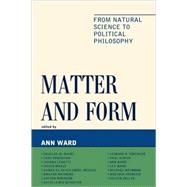
What is included with this book?
| Acknowledgments | p. ix |
| Introduction | p. xi |
| Ancient Science, Natural Teleology, And The Order Of Politics | p. 1 |
| The Polis Philosophers | p. 3 |
| The Immortality of the Soul and the Origin of the Cosmos in Plato's Phaedo | p. 19 |
| Plato's Science of Living Well | p. 35 |
| Understanding Aristotle's Politics through Form and Matter | p. 45 |
| Heavenly Perfection And Psychic Harmony | p. 55 |
| Making "Men See Clearly": Physical Imperfection and Mathematical Order in Ptolemy's Syntaxis | p. 57 |
| Realism and Liberalism in the Naturalistic-Psychological Roots of Averroës Critique of Plato's Republic | p. 71 |
| Skepticism, Mechanism, And The New Politics | p. 85 |
| Skepticism, Science, and Politics in Montaigne's Essays | p. 87 |
| Parmenidean Intuitions in Descartes's Theory of the Heart's Motion | p. 103 |
| Hobbes's Natural Condition and his Natural Science of the Mind in Leviathan | p. 119 |
| Hobbes and Aristotle: Science and Politics | p. 133 |
| From Metaphysics to Ethics and Beyond: Hobbes's Reaction to Aristotelian Essentialism | p. 147 |
| Hobbes and Aristotle on Biology, Reason, and Reproduction | p. 163 |
| The Scientific Roots Of Liberalism And Contemporary "BioPolitics" | p. 177 |
| Locke and the Problematic Relation between Natural Science and Moral Philosophy | p. 179 |
| Rousseau's Botanical-Political Problem: On the Nature of Nature and Political Philosophy | p. 195 |
| Contrasting Biological and Humanistic Approaches to the Evolution of Political Morality | p. 211 |
| Dialogue of the Sciences and the Humanities | p. 229 |
| Index | p. 235 |
| Notes on Contributors | p. 239 |
| Table of Contents provided by Ingram. All Rights Reserved. |
The New copy of this book will include any supplemental materials advertised. Please check the title of the book to determine if it should include any access cards, study guides, lab manuals, CDs, etc.
The Used, Rental and eBook copies of this book are not guaranteed to include any supplemental materials. Typically, only the book itself is included. This is true even if the title states it includes any access cards, study guides, lab manuals, CDs, etc.